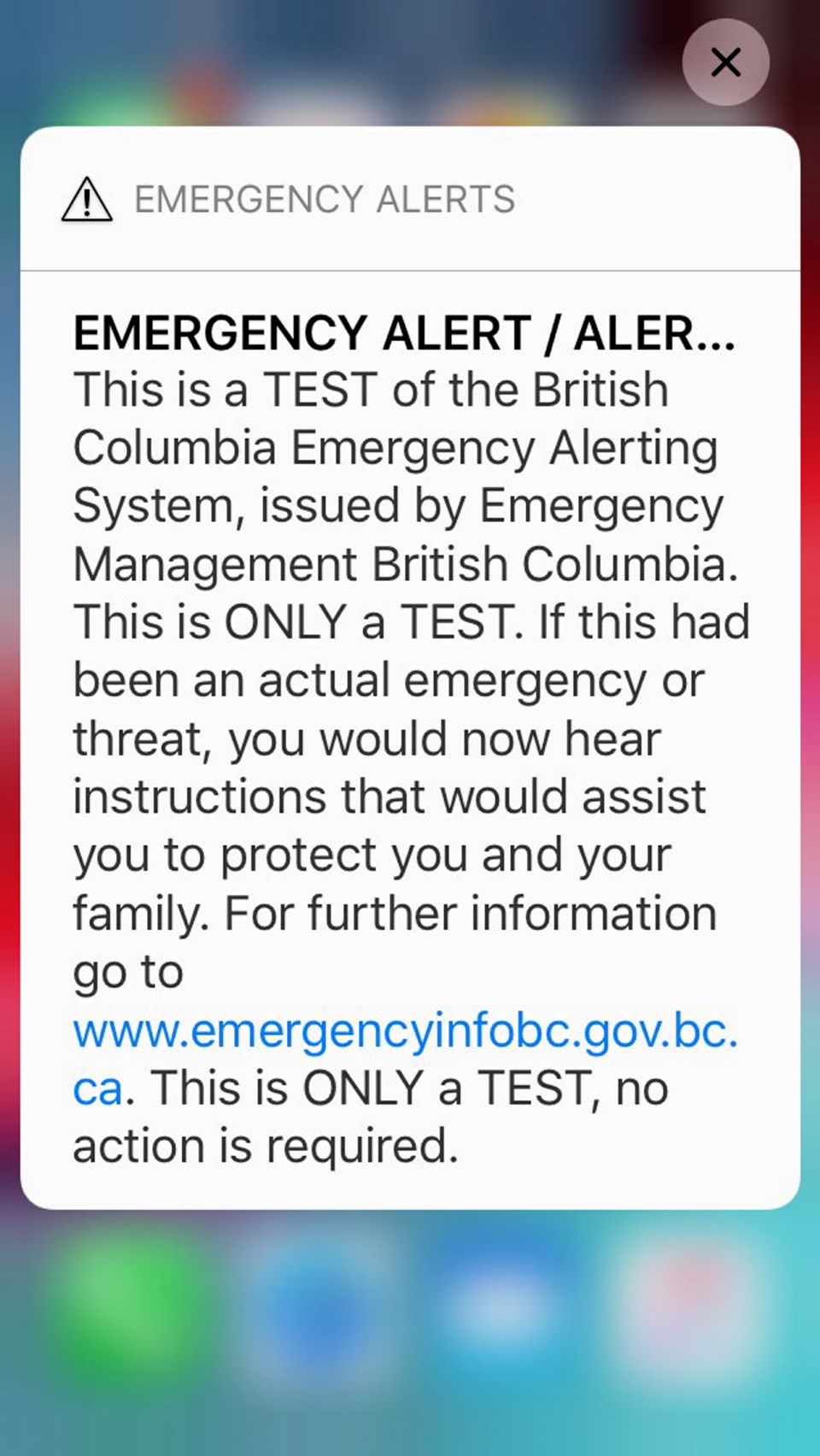Not all British Columbians heard the sirens that emanated from mobile phones at 1:55 p.m., a sign that the Alert Ready system is not yet working perfectly.
For several seconds, a loud alert tone blared from smartphones, along with a voice saying: “This is only a test.” A text notification was also sent. The alerts also appeared on television and radio stations as part of a Canada-wide safety-alert test.
However, many on social media said they didn’t receive the alert, even though they have a late model phone with one of the cellular carriers that has opted into the service.
The alert was meant to sound on compatible mobile phones connected to a 4G or LTE wireless network. However, wireless devices that were set to silent or had their volume turned down may not have played the emergency alert sound.
Emergency Management B.C. carried out the test at 1:55 p.m. local time.
Jennifer Rice, parliamentary secretary for emergency preparedness, said she was at a conference for the B.C. Federation of Labour with Premier John Horgan, who was scheduled to speak precisely when the alert went off. Horgan asked the crowd if everyone got the alert and Rice said all 600 people in the room raised their hands to confirm they did.
“Almost all my colleagues told me they received the message, which was better than in the spring when 50 per cent received it,” Rice said. The initial test on May 9 experienced glitches across B.C. and the rest of the country. The test system was silent in Quebec and alerts were spotty in Ontario and Manitoba.
Rice said cellphone users had to have the latest operating system installed on their phone, so anyone who had out-of-date software might not have heard the alert.
Emergency Management B.C. will work with Pelmorex, the company that operates the system, and Public Safety Canada to gather data on how many people in B.C. received the alert, Rice said. That will take about week.
Emergency Management B.C. expanded the existing radio and TV alert system to include cellphones on April 6.
“Not one system is the perfect alerting system for reaching everyone, but it’s about expanding the reach,” Rice said.
“Another positive thing about doing these tests, it’s an opportunity for people to think about their own personal level of preparedness. So check the expiry date of the non-perishable food or make sure there’s water in your emergency kit and if you don’t have a kit, maybe it’s time to get one.”
The emergency management agency said B.C. will initially use the alerts only in the event of a tsunami, but there are plans to expand their use to other emergencies and hazards.
Rice said eventually the province would like to expand the technology to the RCMP, which can send alerts in the case of a missing child.
No date has been set for the next test, but Rice said it will likely be during emergency preparedness week in May.
For more information about the alert system or to find out if a device is compatible, go to alertready.ca.
— With a file from The Canadian Press a



